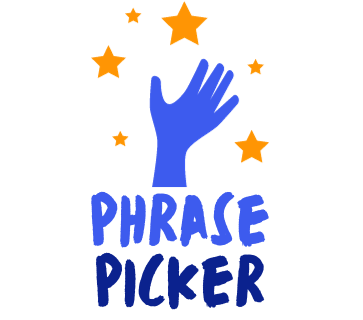Introduction
The anticipation of future events often revolve around the captivating phrase, ‘excited for what’s to come.’ A reflection of optimism, enthusiasm, and an open-hearted embrace of future possibilities, this phrase serves as a powerful tool in navigating conversations about the future. Whether it is used in casual chats, formal dialogues, or professional discussions, understanding the context, usage and alternatives of ‘excited for what’s to come’ can enrich one’s communication skills. In this article, we delve into the multiple contexts in which this phrase can find itself and offer suggestions for alternative expressions that convey similar sentiments of anticipatory excitement.
Key Takeaways
- The phrase excited for what’s to come helps to express an optimistic outlook towards future events or initiatives. It illustrates a forward-thinking mindset and the thrill of potential advancement or improvement.
- The saying excited for what’s to come can be employed in various contexts, including personal growth, corporate projects, or even community development. The versatility of this phrase broadens its appeal and allows an extensive range of application.
- Alternatives to the phrase excited for what’s to come could include expressions like looking forward to the future or eager to see what lies ahead. These alternatives convey the same anticipation and optimism while adding a fresh twist to the sentiment.
Other Ways to Say “excited for whats to come”
- Looking forward to the future
- Anticipating what’s next
- Eager about the forward journey
- Thrilled about the upcoming events
- Charged up for the oncoming
- Enthusiastic about what’s on the horizon
- Full of anticipation for what’s ahead
- Can’t wait for what lies ahead
- Buzzing about the forthcoming
- Keen for what the future holds
- Awaiting the future with eagerness
- Stoked for what’s in store
- Can’t wait to see what the future brings
- Thrilled for the next chapter
- Excited about the road ahead
Eagerly Anticipating the Upcoming
There are several formal variations to the colloquial phrase ‘excited for what’s to come’. You might opt for phrases such as ‘Eagerly anticipating future events’, or ‘Looking forward with great enthusiasm’, or perhaps ‘‘Enthused about the forthcoming’‘. Choosing a formal variant like these not only enriches your language skills but it also shows respect towards the recipient of the message, making it perfectly suitable for formal correspondence or professional environments.
Dear Team,
I wanted to take a few moments to share the status of our ongoing project. We’ve made significant progress over the past few months and I believe we are now on the verge of achieving something truly spectacular.
I am extremely eager to see the future outcomes of our combined efforts and am confident that we will meet our goals, not only in terms of project completion, but also in surpassing the expectations that were set at the outset.
Looking forward to creating more milestones together.
Best Regards, [Your Name]
How To Answer Formal
The phrase, ‘Excited for what’s to come’, manifests an anticipation or looking forward to future happenings, mainly in positive contexts. Aptly used in discourse involving future plans or prospects, this statement communicates a joyful anticipation for future occurrences. For instance, upon being asked about feelings towards an impending career change, one can respond, ‘I am excited for what’s to come’, conveying an acceptance and eagerness for new challenges.
However, in a formal context, one may want to express this sentiment with a degree of sophistication. Words that communicate enthusiasm, yet maintaining formal decorum can be the perfect substitute for ‘excited’. Examples include ‘I am looking forward to what’s to come’, or ‘I anticipate with eagerness what lies ahead’, or even ‘I am enthusiastic for future prospects‘, seamlessly replacing the casual undertone of ‘excited’.
- I foresee promising opportunities in the future.
- I am eagerly anticipating the prospects that lie ahead.
- I am optimistic about what is to come.
Dear [Recipient’s Name],
I hope this message finds you well. I have received your recent correspondence and I share in your enthusiasm. I too am eager to see the development and results of our upcoming initiatives.
We have been working diligently on our projects and your continued support is what fuels our progress. Rest assured, we will keep you updated with all relevant information.
Once again, I appreciate your interest and look forward to our mutual success.
Best Regards,
[Your Name]
[Your Professional Title]
Looking Forward to What Lies Ahead
There are several ways of informally communicating you are excited for what’s to come to someone. For instance, you could say things like: ‘Can’t wait for what’s next’, ‘Buzzing for what’s on the horizon’, or ‘Eager to see what the future brings’. Much like tonal variations you would use in everyday speech, these informal variants let you express your excitement in a more relaxed and approachable tone, making it easier for someone you are conversing with to relate to your anticipation. This is particularly useful when the environment is casual, or if you’re communicating with friends, family or close colleagues.
Hey there!
Just wanted to let you know that I’ve been working on the project we discussed and, to be honest, I’m pumped about what’s ahead. I think we’re on to something big here.
Cheers!
How To Answer Informally
The phrase ‘excited for what’s to come‘ is commonly used to express anticipation for future events. This could be personal milestones, work projects, or simply general future plans. Each scenario is an opportunity to express your excitement informally. For instance, if you are discussing plans for a birthday celebration, instead of saying ‘I am excited for what’s to come’, you could say ‘Can’t wait for the fun ahead!‘ or ‘Looking forward to the birthday bash!‘.
Similarly, if speaking about how you feel for an upcoming project at work to a team member, instead of the professional tone, say something like ‘Super stoked about the new project!‘ or ‘Pumped for the project kick-off!‘. Engaging in informal conversation usually requires that you loosen up your language a bit, using words and expressions that are more fitting for a relaxed, casual context.
- Can’t wait for the adventure we’re about to have!
- Super eager for the weekend getaway!
- All set to take on the new challenges!
- Ready for the rollercoaster ride!
- Amazed by what the future holds!
Hey there!
I’m glad to hear that you’re excited for what’s to come. I’m pretty stoked too! There’s so much to look forward to and it’s great to see you so enthusiastic about the future.
Stay awesome!
Is It Correct to Say “excited for whats to come”?
Looking at the sentence structure, it is completely correct to use the phrase excited for what’s to come. This phrase is deemed as neutral and is neither polite nor rude. It is simply a way to express your anticipation about future events. The choice of words, tone, and context in which it’s used can convey different emotions, but by itself, the sentence doesn’t entail any rudeness or politeness.
The phrase can be used in both formal and informal settings, making it a versatile piece of language. Variants or alternatives to this phrase can include ‘Looking forward to the future’, ‘anticipating future events’, or ‘enthusiastic about what’s next’.
In conclusion, the phrase excited for what’s to come is a general, commonly-used expression. We’ve taken a deep dive into its usage, connotation, and alternatives, and trust that you now have a clear understanding of how to use this phrase effectively. Remember, language is a tool to convey meaning. The power is in how you wield it!



